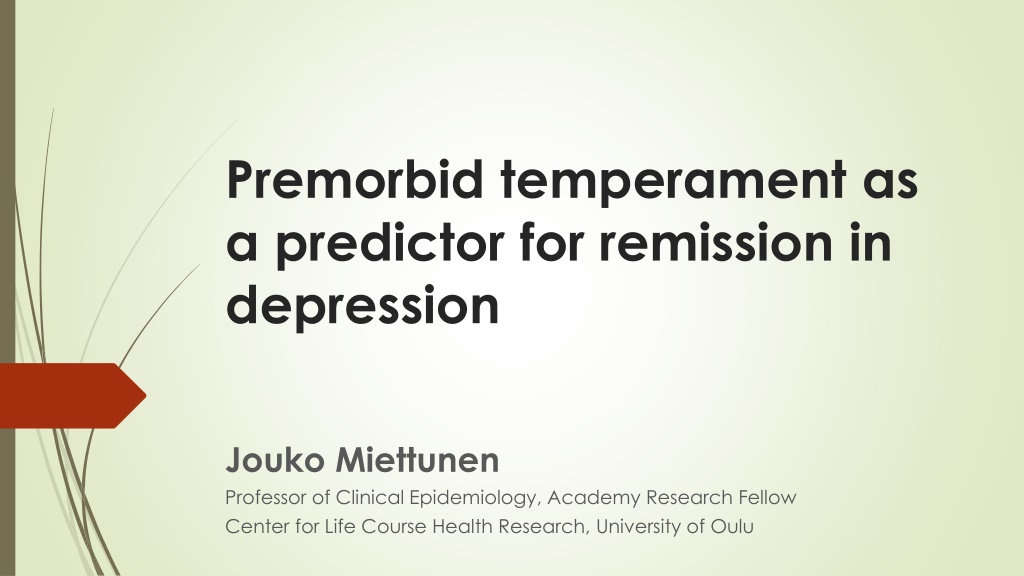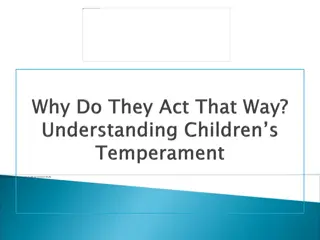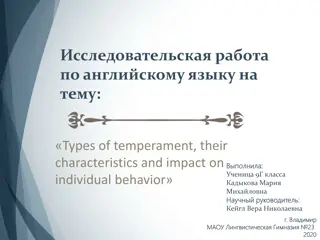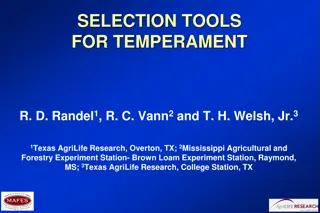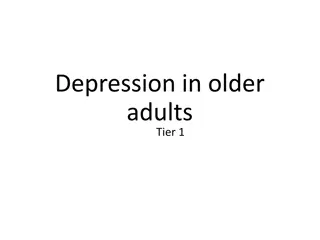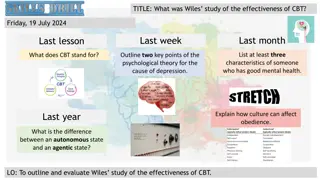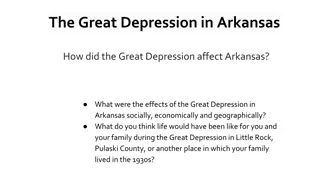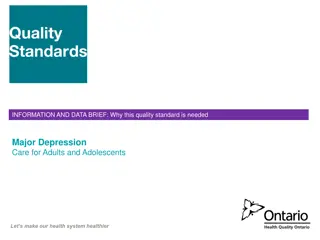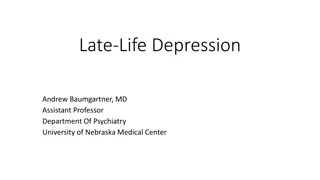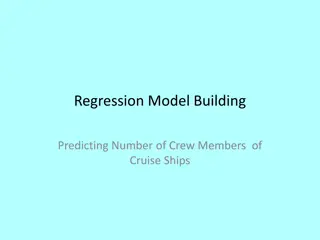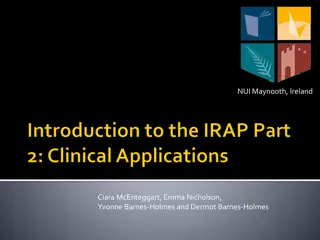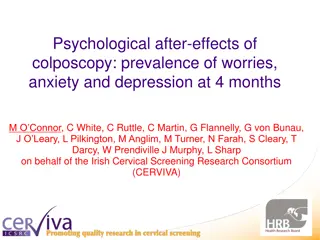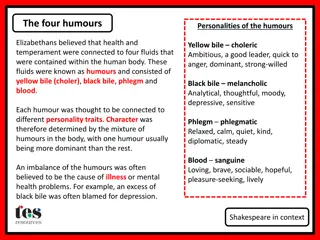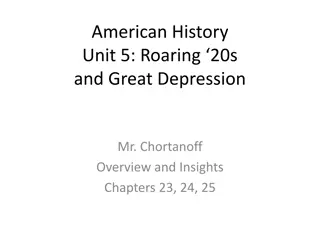Premorbid Temperament as a Predictor for Remission in Depression Study
Personality traits, specifically premorbid temperament, play a crucial role in predicting remission from depressive disorders. This study, led by Professor Jouko Miettunen, examines how premorbid personality can be a significant factor in assessing the risk and outcome of depressive disorders. By analyzing data from the Northern Finland Birth Cohort 1966, including temperament assessments and depressive symptoms, the researchers aim to understand the relationship between temperament dimensions and depressive remission. Utilizing the Temperament and Character Inventory along with logistic regression analysis, this research sheds light on the potential of premorbid personality measures in predicting depressive disorder outcomes.
Download Presentation

Please find below an Image/Link to download the presentation.
The content on the website is provided AS IS for your information and personal use only. It may not be sold, licensed, or shared on other websites without obtaining consent from the author. Download presentation by click this link. If you encounter any issues during the download, it is possible that the publisher has removed the file from their server.
E N D
Presentation Transcript
Premorbid temperament as a predictor for remission in depression Jouko Miettunen Professor of Clinical Epidemiology, Academy Research Fellow Center for Life Course Health Research, University of Oulu
Background and aims Personality traits have been associated with risk for depressive disorders. Studies with premorbid measures on personality are uncommon. We wanted to estimate effect of premorbid personality as a predictor for remission in depressive disorders. Kampman & Poutanen J Affect Disord 2011;135:20-7
Cloningers temperament dimensions Temperament and Character Inventory (TCI) 107 temperament no/yes items novelty seeking tendency to respond with intense excitement to novel stimuli and thereby initiating behavior harm avoidance tendency to respond intensively to signals of aversive stimuli, thereby stopping behavior reward dependence tendency to respond intensely to signals of reward, especially social rewards, thereby continuing particular behaviors Persistence tendency to persevere in behaviors that have been associated with reward potential intermediate phenotypes in different psychiatric disorders Cloninger et al. Arch Gen Psychiatry 1993;50:975 90.
Meta-analysis Miettunen J & Raevuori A. Compr Psychiatry 2012; 53:152-66.
Methods Northern Finland Birth Cohort 1966 The study is based on the two large follow-up studies (at age 31 and 46 years) Age 31 years N=5,032 and age 46 years N=5,335 In total 3,340 persons with temperament data on both time points The sample included those with self-reported doctor diagnosed current or previous depression at age 46 years, but not yet at age 31 years (n=298)
Methods Temperament and Character Inventory was filled in at age 31 At the age of 46 years depressive symptoms were measured using Beck Depression Inventory II (BDI) Temperament at age 31 years was used to predict remission (BDI 13) at age 46 years using logistic regression analysis, with gender and educational level as confounders Cohen s d was used as effect size measure 0.2 small, 0.5 moderate and 08 large effect
Results In total, 201 (67.4%) of individuals were on remission at the 46-year follow-up. Low harm avoidance (total scale, and subscales anticipatory worry, shyness, and fatigability), low impulsiveness and high exploratory excitability (subscales of novelty seeking), and low sentimentality (subscale of reward dependence) predicted significantly remission with effect sizes between 0.28 and 0.45, highest effect being in harm avoidance.
Results Among those who were not on remission, higher sentimentality (subscale of RD) associated (OR 1.3; 1.1- 1.6) with using antidepressant medication at the follow-up.
Discussion Harm avoidance has been associated also with treatment resistant depression (Takahashi et al. PLoS One 2013) and with treatment response in depression (Kampman et al. Eur Psychiatry 2012) Sentimentality has been associated previously with depression (Elovainio et al. J Affect Disord 2004), now with treatment adherence. Effect of temperament on outcome of other disorders? Help seeking, adherence, physical activity, substance use, Temperament (e.g. harm avoidance) traits associate more strongly with risk of depression than it s outcome.
- In metabolic diseases? An even in depression? Boersma et al. Eur J Pharmacology 2011; 667:23-5.
Research team: Jouko Miettunen1,2, Riikka Marttila1,2, Nina Rautio1,2,3, Eka Roivainen4, Sirkka Kein nen-Kiukaanniemi1,2,3, Leena Ala-Mursula1, Juha Auvinen1,3, Markku Timonen1,2 1 Center for Life Course Health Research, University of Oulu, Oulu, Finland 2 Medical Research Oulu, Oulu University Hospital and University of Oulu, Oulu, Finland 3 Unit of Primary Health Care, Oulu University Hospital, Oulu, Finland 4 Verve Rehabilitation, P.O. Box 404, 90101 Oulu Acknowledgements: This study has been supported by the Academy of Finland, the NARSAD: the Brain and Behavior Research Fund, and the Jalmari and Rauha Ahokas Foundation.
